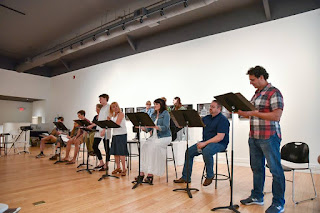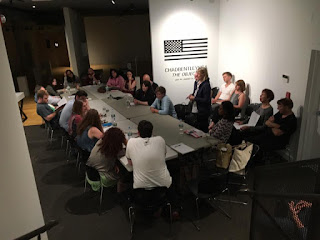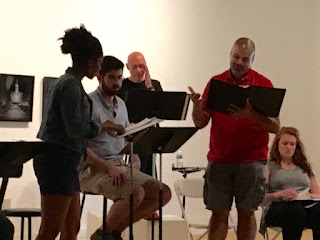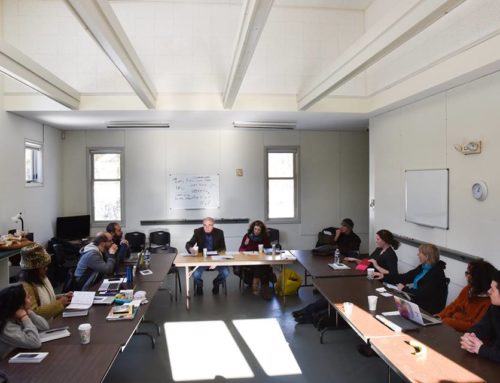Last month in Peterborough, New Hampshire there was a ten-day explosion of creative storytelling as 13 full-length scripts–plays, screenplays,and tv pilots–were lifted off the page for the first time.
Writers from all over the US and Canada gathered in this culturally alive village in the heart of New England to celebrate their art with professional actors, directors, designers, producers, and public audiences–everyone involved and focused on the new work being presented. It was a high energy and exhilarating time for all participants and everyone left the gathering recharged and recommitted to our shared collaborative art form and the scripts that ignite it all.
What I’m referring to, of course, is the latest residency experience of the low-residency MFA in Writing for Stage and Screen program run out of the New Hampshire Institute of Art. The program boasts a faculty of established professional writers and other visiting theatre and film professionals who teach classes and workshops and who mentor our students throughout the two-year course of study. And at the heart of the program are the new scripts being written by every student–at least four full-length works while in the program–all of which are read and critiqued at each of the five residencies the students participate in.
Our program is nationally unique in its commitment to having every student create a substantial beginning body of work that serves as a launching pad for his or her script writing career. Every effort is made to refine the craft and skill of our student writers and to realistically prepare them for the rigors of entering the professional writer’s arena in the various mediums. This is our trademark and our promise to every student, and our growing list of alumni and their successes lends credence to that commitment.
If you’re looking for a place to learn and grow as a script writer in a safe and supportive, yet challenging environment, I suggest you check out our program. The added bonus is that when you complete the program, you not only are prepared to begin your professional writing career, but you also walk away with that terminal degree under your arm.










Leave A Comment